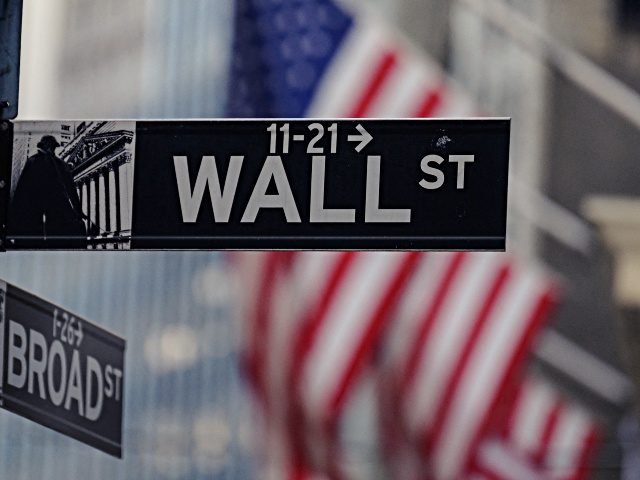AMERICA'S BIGGEST THREAT LIVES ON WALL STREET. WE NEED TO BURN THEM DOWN!
Gravitas Plus: How Big Pharma pushes dangerous drugs and reaps profits
Big Pharma - How much power do drug companies have? | DW Documentary
Dying for Drugs (Pharmaceutical Investigation Documentary) | Real Stories
Multinational Corporations Claim Challenging Monopoly Power Hurts Small Business

Multinational corporations, including big banks and big businesses represented by the Chamber of Commerce, are lobbying against a plan by New York State legislators to take on concentrated corporate monopoly power by claiming it will hurt small businesses.
The legislation, known as S.B.933A, would amount to the “most significant legal challenge to big tech monopoly power in the country,” according to Matt Stoller, the Director of Research at the American Economic Liberties Project.
“Right now, to be considered subject to monopolization law, a firm has to have 70 to 90% of a market, plus it has to engage in egregious behavior that economists measure as inefficient,” Stoller wrote of the legislation last year:
This bill would blow up that entire framework. First, a firm would only have to have 40% of a market to be considered dominant. Plus, firms that are powerful enough to set wages across an industry, ahem Amazon, would also be considered dominant. It wouldn’t be illegal to be dominant, but under this legislative framework, dominant firms would no longer be allowed to engage in predatory conduct or block competitors from the market. [Emphasis added]
A group of multinational corporations and various Chamber of Commerce branches, represented by the Partnership for New York City organization, wrote a letter to New York legislators and Gov. Kathy Hochul (D) — using allegations that small businesses will be hurt to lobby opposition against the legislation.
“This legislation purports to curb the excesses of the largest companies, particularly ‘big tech,’ but would instead create a new level of risk, cost, and potential liability for all New York state businesses, large and small,” the heads of various corporations write:
If enacted, this law would make New York far less attractive for business investment and job creation, since it will put restrictions on New York firms that their competitors in other states and most countries would not be subject to. It would also discourage competitive business activities that benefit consumers with lower prices and innovative products. Ultimately, the result of this legislation will be lost jobs and reduced tax revenues. [Emphasis added]
…
The implications of these changes would be significant. New York would be an outlier in its antitrust enforcement posture not only in the U.S., but internationally. Moreover, the new rules will not improve the ability of state authorities to prosecute bad business conduct that hurts consumers. New York already has effective antitrust laws that are vigorously enforced by the Attorney General’s Office, often in close coordination with the federal antitrust enforcement agencies and sister agencies in other states. [Emphasis added]
The anti-monopoly legislation, though, is only likely to affect corporations with concentrated market power, many of whom signed onto the letter — including American Express, Condé Nast, Pfizer, McGraw-Hill Education, and Sullivan & Cromwell LLP.
American Economic Liberties Project details that “only a small proportion of firms will have any changes to their legal obligations, as most firms do not have market power” as a result of the legislation.
“Large corporations are using small businesses as a shield to protect their own anti-competitive behavior, but most small and medium firms simply do not have enough market power to fall under this bill’s purview,” the group notes.
As data has long revealed, a handful of corporations dominate vital markets in the American economy from retail to pharmaceuticals — often outsourcing the manufacturing and production of their products to foreign countries.
According to the Open Markets Institute, corporations like “Worldwide Nike controls almost two-fifths of the sports shoe business, a number that has grown since its two main rivals, Adidas and Reebok, merged in 2005” while “Amazon sells 74 percent of all e-books sold online, and it sells 64 percent of all print books sold online.”
John Binder is a reporter for Breitbart News. Email him at jbinder@breitbart.com. Follow him on Twitter here.
Exclusive — James O’Keefe: Pharmaceutical Companies Drive COVID-19 Media Corruption

James O’Keefe, founder and CEO of Project Veritas and author of American Muckraker: Rethinking Journalism for the 21st Century, noted on Monday’s edition of the Breitbart News Daily podcast with special guest host Jerome Hudson that cable news networks have financial conflicts of interest corrupting their conduct regarding COVID-19 information due to their sales of advertising to pharmaceutical companies.
O’Keefe observed how many news media outlets deceptively market themselves as disinterested observers, rather than shapers, of events. In the context of COVID-19, he said news media outlets’ financial conflicts of interest related to pharmaceutical companies determines what and how they frame information.
“These network news television stations don’t want to be in an exposed position where they’re seen as affecting events rather than just reacting to them,” he stated, “and that’s partially due to the economic issues where they have advertisers that direct their editorial content, and especially pharmaceutical company advertisements.”
He added, “In a time when the number one story in the world is this COVID pandemic, we need independent journalism [that is] not at the beck and call of pharmaceutical companies.”
Project Veritas’s growing acquisition of whistleblowers across varying institutions and sectors is forging a path for journalism in the modern era amid growing corruption across government and industry, O’Keefe held.
“Whistleblowing [is] really the future of journalism,” he remarked. He added, “[American Muckraker] was my attempt to talk about how to do journalism in clown world.”
He continued, “It’s important for everyone to understand what it’s going to take to prevent the collapse of society, and the way to do that is through vis-a-vis information — truthful information — that we have to expose. … There’s a sort of a new era, and there’s a mass movement of people that we’re trying to foster.”
O’Keefe said targets of Project Veritas’s investigations do not sue whistleblowers who reveal information through Project Veritas due to fears of disclosures compelled by the legal discovery process.
He stated, “[Targets of our investigations] stopped suing us, because they quickly realized that we could depose them. So we sued the New York Times for defamation. We’ve been successful, and they do not want to be deposed. They would hate us showing the answers to these questions, and that’s why they don’t sue our whistleblowers, because they don’t want to be exposed for who they are and what they are.”
The Breitbart News Daily podcast is available for listening and download via Apple Podcasts, Google Podcasts, Spotify, and Amazon Music.
Breitbart News Daily broadcasts live on SiriusXM Patriot 125 weekdays from 6:00 a.m. to 9:00 a.m. Eastern.
No comments:
Post a Comment